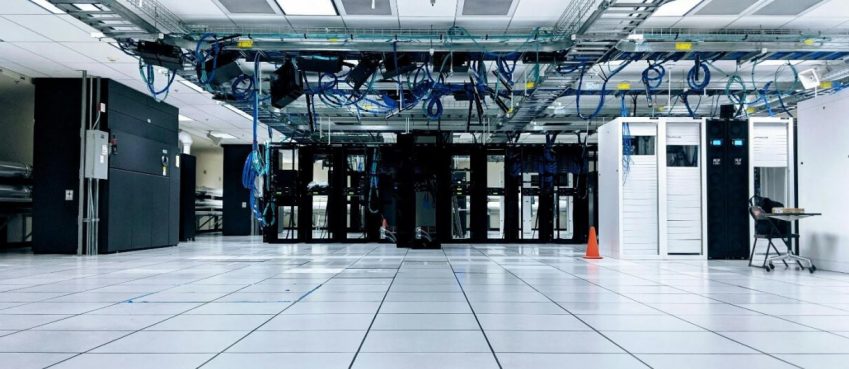
Data. It is an important and highly valuable asset for any company. It’s no surprise that cybercriminals all over the globe are after it. As a business owner, your job is to create a security program that protects data and shelters it. It can be very difficult, as evidenced by recent breaches.
These stories, along with other hacking stories that can be nerve-wracking, are not meant to be a source of blame but to highlight the importance of data security.
The April 2022 Block-Cash App breach announcement may have revealed more customers’ data. Microsoft had a hacking incident a month prior. However, the company claimed that no client data was affected. Nearly 500 Crypto.com users had $30+ Million stolen together at the start of the year after a serious hacking incident.
Cybersecurity threats can cause global corporations to collapse, and they can also affect any organization. What happens if you don’t have the resources for crisis management or the long-term credibility of a legacy company? Your brand may not be able to withstand negative press and customer backlash.
Put Stronger Data Security Measures in Place
You can go to the top of the class if you are concerned about hackers and data breaches. You are a future-leaning, wise founder.
You may need some help in order to create protection barriers between your data, and the digital criminals. These strategies can make your company less attractive to criminals.
1. Know Your Industry’s Baseline to Ensure Data Security Programs are Implemented.
You may have to protect different types of data depending on the industry. These types of data could range from physical financial records to employee information to trade secrets. If you need to protect sensitive, confidential, or proprietary information, you need to securely destroy your paper documents in order to avoid data breaches.
Routine compliance audits may be required, as is the case with financial companies.
There is a good chance that you know what to do regarding data security. It’s still worth taking a look at all the data that you have and how it is used. You don’t want your knowledge to lead to a breach of regulations.
Also read: How To Monetize YouTube Channel Without Showing Your Face? (2025 Guide)2. Assess The Risk Level of Third-Party Vendors.
CyberRisk Alliance Business Intelligence found that nine of the 10 data breaches in 2021 could have been linked to third-party vendors. This means that all vendors you use could become “backdoor” opportunities for hackers. There are ways to mitigate the risks of working with third-party vendors. The software can be used to assess and track the level of risk. Integrated risk management platforms such as Ostendio MyVCM enable you to assess third-party risk and ensure that those who have access to the data are properly protecting it.
You can’t trust everything a vendor claims, even if it seems safe and secure. With the help of intelligent risk management software, you can be sure that your due diligence is done. You’ll also have a written audit trail to prove your case later if needed.
3. Remote Work Gaps Should be Addressed in Your Data Security Program.
A report from The New York Times revealed that 86% of telecommuters did not want to go back to work as of late 2021. They were happy to work remotely.
Although this may be a great idea for many reasons, it can pose a risk to your business by having multiple teleworkers. Remote workers could expose corporate data without proper protection.
However, you don’t need to bring everyone back to the headquarters. You should make sure they have access to a corporate private network. You don’t want someone accessing public WiFi at a coffee shop.
Remote employees must have their own devices that they can use only for work. A password management tool like 1Password, for example, can be used to make stronger logins or manage employee access to third-party applications. Also, insist on two-factor authentication for all logins.
When someone leaves your organization, you must immediately close all access points to your system.
Also read: Chromecast vs Firestick: Which Is The Better Streaming Device? (A Complete Guide)4. Perform Routine Internal Security Audits.
You can still do security audits even if your field isn’t one of them.
Gather information each quarter from the heads of your departments. Ask your department heads about any changes that might affect your data risk. These changes could include new suppliers or an addition to the tech stack.
Once you have identified all the changes that occurred, you can assess if your data is at risk. If you have one, work with your IT leader and CTO to make sure that this is done.
Consider working with a technical consultant once a year if your company is small or new. Breaches can be expensive and can be very costly for small businesses.
5. Training Employees to Become “Mini-Managers” in Data Security.
Your employees may have great talent. You may even find that they are highly skilled.
They may not be aware that certain activities they engage in every day can make your data vulnerable. Your team members can benefit from cybersecurity training. It is important that they are able to spot potential problems such as phishing scams and malware downloads.
Be sure to include a document about data cybersecurity trends as part of your education approach. Also, make sure you have best practices for your workplace. It could be included in your employee handbook. You can also outline what you should do in the event of a cyber attack or breach.
Your staff will be more capable of stewarding your data if they have more knowledge. Training employees should be a priority at least twice per year. New techniques are constantly being developed. This serves as an excellent reminder to everyone to be aware of phishing scams, and other threats to data security programs.
Although your customers, employees, stakeholders, and other stakeholders might not always be able to tell you, they expect you to protect their data. It is the best thing you can do to secure all data that enters your business. Cyber thieves will not be able to find your data quickly if it is difficult to extract.
Top 10 News
-
01
Top 10 Deep Learning Multimodal Models & Their Uses
Tuesday August 12, 2025
-
02
10 Google AI Mode Facts That Every SEOs Should Know (And Wha...
Friday July 4, 2025
-
03
Top 10 visionOS 26 Features & Announcement (With Video)
Thursday June 12, 2025
-
04
Top 10 Veo 3 AI Video Generators in 2025 (Compared & Te...
Tuesday June 10, 2025
-
05
Top 10 AI GPUs That Can Increase Work Productivity By 30% (W...
Wednesday May 28, 2025
-
06
[10 BEST] AI Influencer Generator Apps Trending Right Now
Monday March 17, 2025
-
07
The 10 Best Companies Providing Electric Fencing For Busines...
Tuesday March 11, 2025
-
08
Top 10 Social Security Fairness Act Benefits In 2025
Wednesday March 5, 2025
-
09
Top 10 AI Infrastructure Companies In The World
Tuesday February 11, 2025
-
10
What Are Top 10 Blood Thinners To Minimize Heart Disease?
Wednesday January 22, 2025







